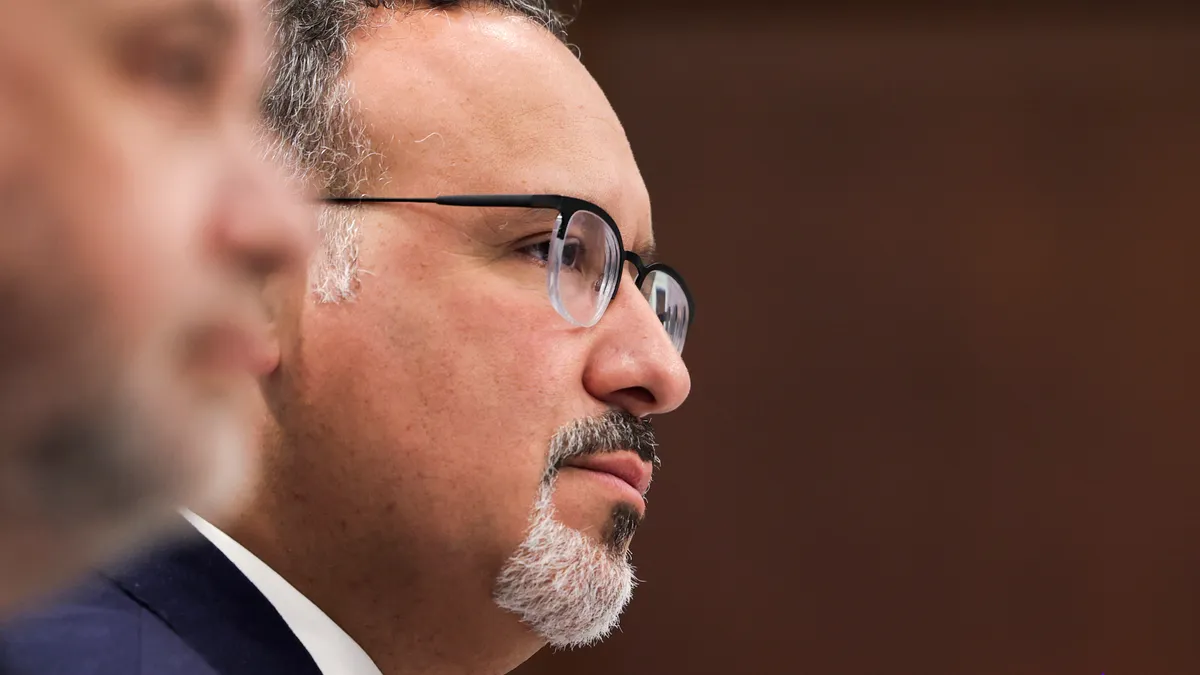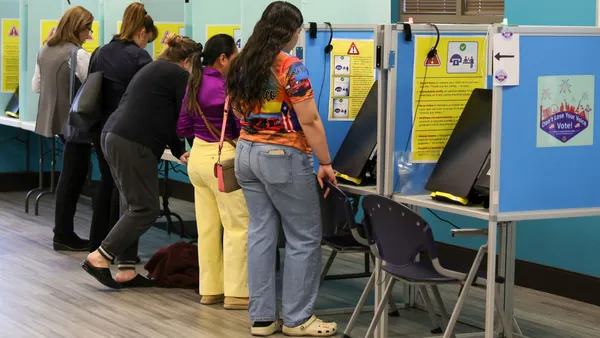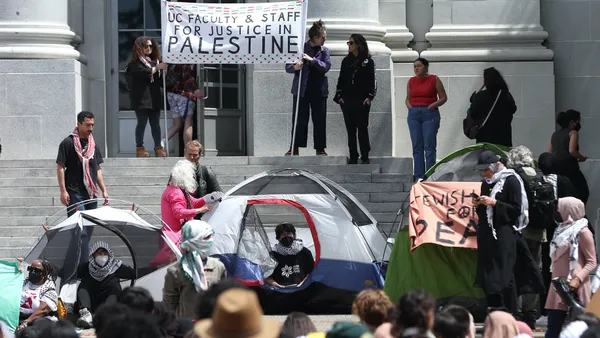Dive Brief:
- Pennsylvania’s governor is seeking to unite the state’s community colleges and its four-year public higher education system under one governance framework — while significantly dropping tuition costs for low- and moderate-income students at the same time.
- Gov. Josh Shapiro, a Democrat, unveiled his pitch Friday, which would also create a performance-based funding model for all publicly funded colleges. That would include state-related institutions like Pennsylvania State University, which receive some public money but operate independently by and large.
- The plan won quick endorsement from several college leaders, including Dan Greenstein, chancellor of the Pennsylvania State System of Higher Education, also known as PASSHE. The new, combined system would give “students more pathways to a degree or credential” while providing them with the lowest-cost option for a college education, Greenstein said in a statement Friday.
Dive Insight:
In a Friday statement, Shapiro said the state needs to rethink its higher education system. Pennsylvania colleges operate in a highly saturated market that features not only PASSHE and community colleges, but also state-related institutions like Penn State and several well-known private nonprofits, such as Drexel and Villanova universities.
This makes competition for students fierce, a challenge exacerbated by state demographics. Pennsylvania is losing residents fast — more quickly than 46 other states, according to 2022 U.S. Census data.
This hemorrhaging, along with historically weak state funding for public institutions, has spurred PASSHE colleges to raise tuition and consolidate institutions to stay afloat. Higher education experts say these moves have boxed out some of the most vulnerable students.
Enrollment at PASSHE institutions has dropped about 30% in the past decade, according to the governor’s office, and the system has roughly 83,000 students today. Over that same period, enrollment fell by about 37% at community colleges, which now enroll about 250,000 students.
Shapiro’s plan entails investing more heavily in public colleges so that state residents earning up to Pennsylvania’s median income — about $70,000 a year — would pay no more than $1,000 in tuition and fees per semester at PASSHE and community colleges. In-state tuition for most PASSHE campuses runs $7,716 a year.
The governor also wants to up state grants for students to attend state-related or independent colleges.
Such dramatic changes would require legislative approval, including instituting a performance-based funding model.
Shapiro did not reveal the details of that proposed model. However, he said it would account for factors like enrollment, graduation rates and the number of first-generation college students who earn credentials. It would also aim to incentivize colleges to recruit and graduate students in high-demand fields in the state like education and nursing.
Performance-based funding models are common nationwide, with at least 41 states employing them at some point, but they have their critics. Peer-reviewed research released in 2020 found such policies may help lift graduation and retention rates slightly, but they can unintentionally restrict access for disadvantaged students as well.
Shapiro’s proposal would also try to address program duplication in the state, a historic problem as Pennsylvania lacks a centralized higher ed governing board, which many states have.













